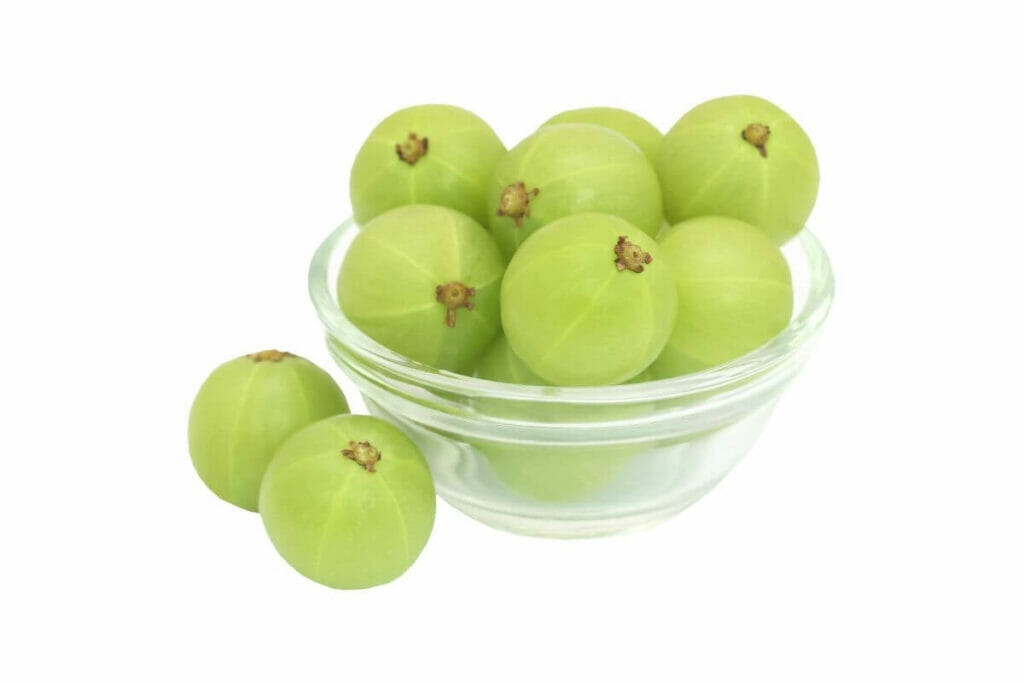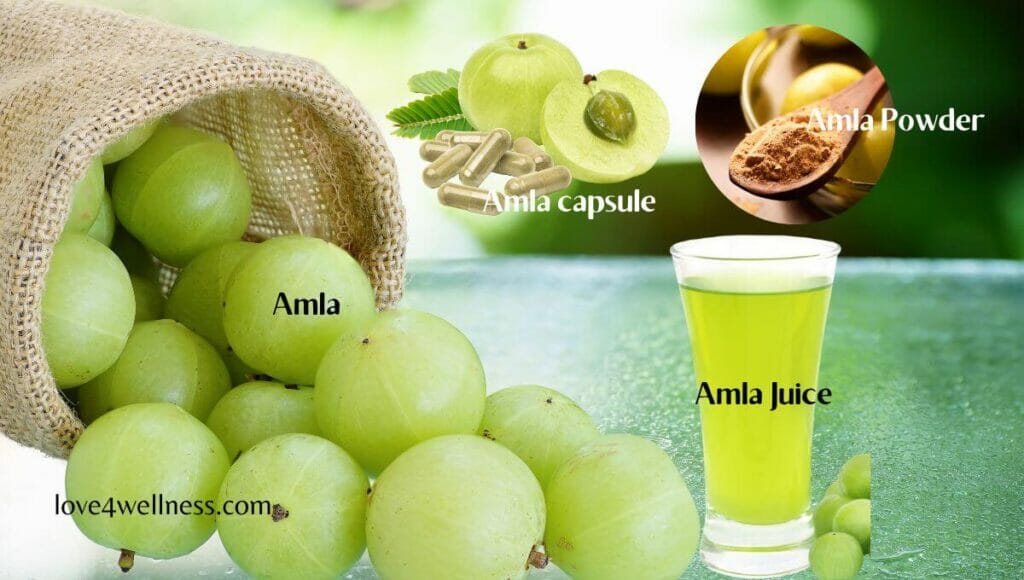Pancreatitis, a condition characterised by inflammation of the pancreas, is a critical disease affecting about 15-50 per 10000 population worldwide. It can manifest as acute or chronic, with the latter being less common. Pancreatitis does not have a cure at present. However, the treatment approach aims to manage and prevent the symptoms. Amla is a natural remedy that may aid in relieving pancreatitis symptoms due to its beneficial medicinal properties, so if you are suffering from the condition, you may want to add it to your management strategy. While it’s crucial to seek medical advice, exploring the potential of amla as a complementary approach to pancreatitis management is worthwhile.
Role of the pancreas in the body
Pancreas is a vital organ located in the abdomen with essentially two functions.
- The pancreas contains a cluster of specialised cells called the Islet of Langerhans that release hormones insulin and glucagon directly into the bloodstream, both crucial to regulate glucose metabolism. While insulin lowers blood sugar levels by enabling energy uptake by the body cells, glucagon raises blood sugar levels by stimulating the release of stored glucose from the liver when your body requires energy.
- The pancreas also produces digestive enzymes, including amylase, lipase, and protease, which reach the small intestine through the bile duct. These enzymes help break down carbohydrates, fats, and proteins in the small intestine.
Understanding Pancreatitis
Pancreatitis occurs when the pancreas becomes inflamed. It can either be acute, with sudden onset and short duration, or chronic, persisting over a longer period.
The most common causes of pancreatitis include:
- Gallstones
- Alcohol abuse
- Certain medications
- Genetic factors.
Symptoms may include:
- Severe abdominal pain
- Nausea
- Vomiting
- Digestive issues
- Complications like infection and pancreatic damage may also occur
It is crucial to seek appropriate medical care for accurate diagnosis and management of pancreatitis, as it is a serious condition that requires professional attention.
About Amla
The Amla fruit, also known as Phyllanthus Emblica, is a small fruit that originates from India and is highly regarded for its rich nutritional content. It contains high levels of vitamin C and antioxidants such as tannin and rutin. Additionally, it has anti-inflammatory properties.
Amla has been utilised for centuries in Ayurvedic medicine to treat various ailments due to its numerous medicinal benefits, including pancreas-related disorders. It can be found in various forms, such as fresh fruit, juice, powder, and supplements. It is also pretty easy to incorporate into your daily diet and reap the health benefits.
Amla’s potential benefits for Pancreatitis
Amla, also known as Indian gooseberry, shows promising potential as a therapeutic agent for pancreatitis. Incorporating amla into your diet, alongside medical treatment and professional advice, may offer complementary benefits.
So, let’s explore why Amla is a valuable addition to a comprehensive pancreatitis management plan. Here are the key benefits of amla for pancreatitis:
1. Antioxidant Powerhouse:
Amla contains antioxidants, including tannin and rutin, that help combat oxidative stress, a key contributor to pancreatic inflammation. These antioxidants neutralise harmful free radicals and reduce inflammation, supporting pancreatic tissue health.
2. Inflammation Reduction:
Amla’s anti-inflammatory properties can aid in reducing inflammation in the pancreas. By suppressing inflammatory markers and modulating signalling pathways, amla may alleviate symptoms associated with pancreatitis.
3. Pancreatic Tissue Protection:
The antioxidant compounds found in amla can help repair pancreatic tissue and prevent further damage by inflammation. This protection may help preserve the structural integrity and proper functioning of the pancreas.
4. Alleviation of Oxidative Stress:
Amla’s antioxidant components have been found to reduce oxidative stress markers in patients with pancreatitis. By combating oxidative stress, amla may contribute to better management of the condition.
Ways to use Amla and incorporate into your diet
Incorporating amla into your diet can be a simple and enjoyable process.
- Fresh raw amla can be consumed directly, but you must get used to its strong tart taste. You can take 1-2 amla per day.
- Take two amlas, a pinch of rock salt, and an ounce of water, grind it in a juicer, filter and consume Amla juice.
- Spiced amla buttermilk is a delicious option to try. Read here for the recipe.
- Grate amla and add it to salads and dishes. It gives a refreshing twist to salads and dishes, just like lemon juice.
- Amla is also available in powder and capsules. However, you must take expert help for the right dosages.
Also Read: Amla Chutney: A Simple Dish With Extraordinary Benefits
Who must consider including amla in the pancreatitis management strategy?
Including amla daily is highly beneficial for people with acute pancreatitis. This can reduce both the frequency and severity of acute pancreatitis episodes. You can work closely with your doctor and even opt for supplements to manage the condition better. Amla can help reduce your dependency on medications.
With regard to chronic pancreatitis, amla may not reduce your dependency on medications. However, it can help reduce the severity of symptoms.
Nevertheless, including amla in your food will never harm you, so make it a habit to include this medicinally beneficial fruit daily.
Takeaway
In conclusion, amla offers hope for individuals dealing with pancreatitis. Its antioxidant and anti-inflammatory properties, along with promising preliminary research, suggest its potential as a complementary approach to pancreatitis management. However, it is essential to remember that each case of pancreatitis is unique, and professional medical advice should always be prioritised. Amla can be a valuable addition to a well-rounded diet, but in no way should it replace prescribed treatments or medical supervision.
Images: canva.com


